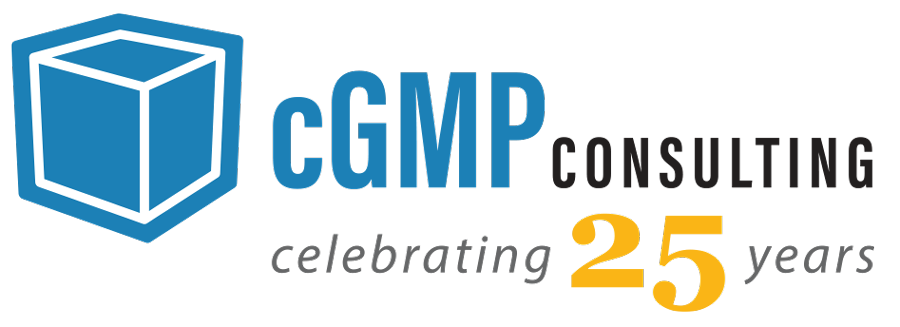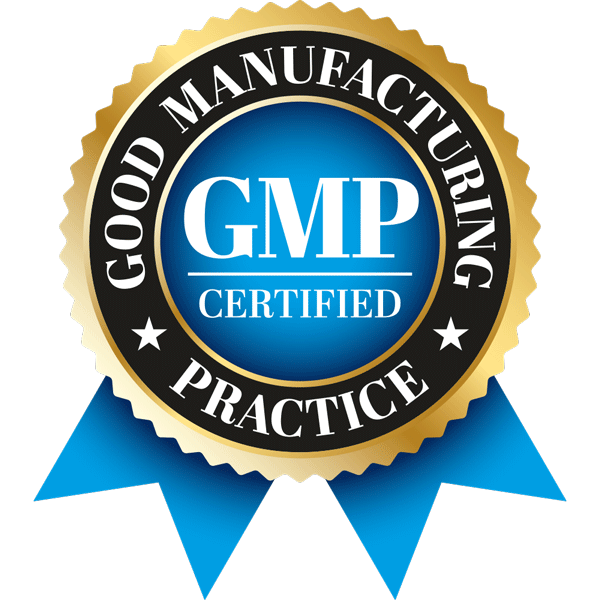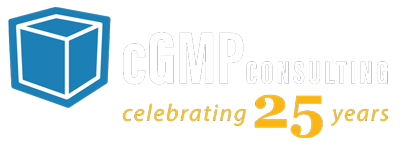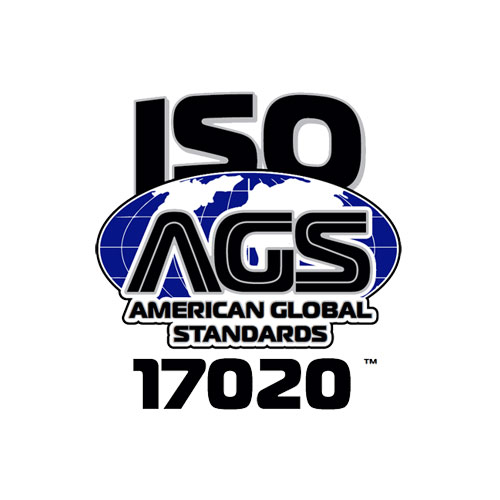
Unlocking Business Potential: Why Distributors Should Embrace cGMP Compliance
Distributors are essential to supply chain management, ensuring the safe and efficient delivery of products across industries. With regulatory conditions varying by industry and consumers demanding assurance of quality, current Good Manufacturing Practices (cGMP) compliance can be a game-changer for distributors looking to expand their business opportunities.
This article explores what distributors need to achieve cGMP compliance and the business advantages they can unlock by making the commitment to a quality management system for their organization.
What Is cGMP Compliance?
cGMP, or current Good Manufacturing Practices, refers to the regulations enforced by the U.S. Food and Drug Administration (FDA) to ensure that products are manufactured, processed, and distributed under consistent quality standards. While the focus falls heavily on manufacturers, distributors are also responsible for ensuring consistency throughout the supply chain to ensure their processes align with cGMP guidelines.
For distributors, cGMP compliance means maintaining the soundness of the products they handle, ensuring proper storage, documentation, and transportation, and minimizing risks such as contamination, mislabeling, or adulteration.
Business Opportunities for cGMP-Compliant Distributors
Achieving cGMP compliance may seem like mostly risk reduction but it’s also a strategic investment in business growth. Here’s how it can open doors to new opportunities:
1. Access to High-Value Partnerships
cGMP compliance strengthens a distributor’s role as a trusted supply chain partner, enhancing credibility and reliability. Businesses are more likely to collaborate with distributors who uphold the same commitment to quality, ensuring that products maintain their integrity and safety throughout the supply chain, from manufacturing to the customer.
2. Expansion into Regulated Markets
Regulatory compliance is essential in industries such as pharmaceuticals, medical devices, and dietary supplements, where cGMP serves as the baseline requirement. By following cGMP standards specific to each industry, distributors can access these high-value markets and establish themselves as reliable partners for regulated industries.
3. Improved Brand Reputation
Compliance demonstrates that an organization has an ongoing commitment to quality, which builds trust with B2B partners and acknowledges a shared responsibility. A strong reputation for quality can translate into long-term business partnerships and growth which in turn, will only strengthen your brand over time.
4. Risk Reduction and Cost Savings
While compliance requires an upfront investment and commitment from all levels of your organization, it reduces the risk of costly recalls, fines, and strained business relationships. In the long term, cGMP compliance is a proactive, cost-effective strategy that means you are committed to quality.
5. Differentiation in a Competitive Market
In an industry where compliance is a key differentiator, GMP certification sets distributors apart from competitors who may not meet the same level of commitment. Achieving and maintaining cGMP compliance demonstrates a long-term investment in quality, sending a clear message to current and prospective partners that your organization prioritizes excellence and regulatory integrity.
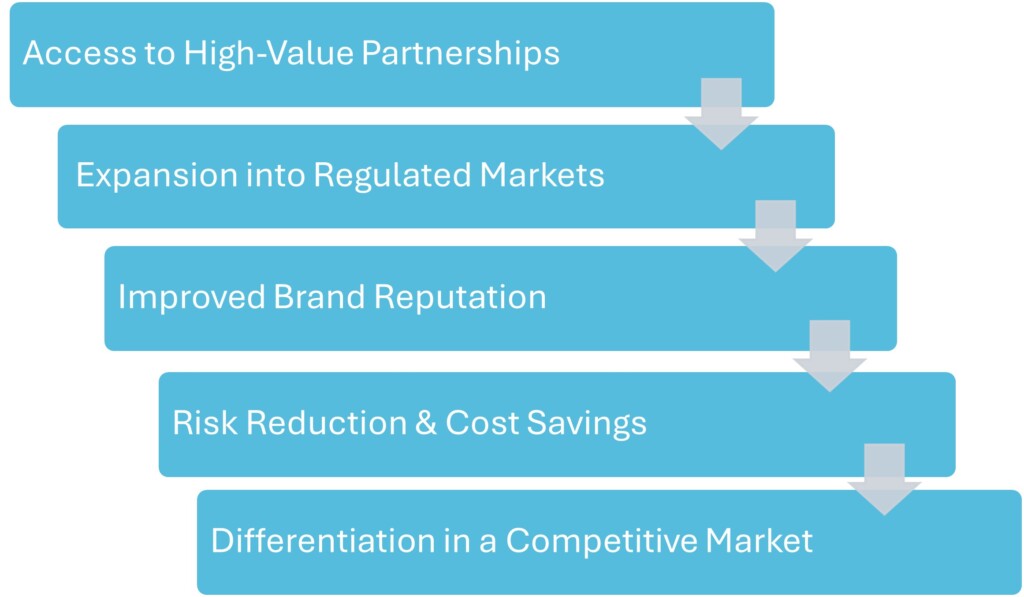
What Distributors Need to Be GMP-Compliant (and How cGMP Consulting Can Help)
Distributors aiming to achieve cGMP compliance must meet a set of rigorous standards to ensure product integrity, safety, and traceability. Here’s a deeper dive into the key elements required for compliance and how cGMP Consulting can support each step of the process.
1. Robust Quality Management System (QMS)
A strong QMS forms the backbone of cGMP compliance. It ensures all activities related to product handling, storage, and distribution are documented and executed consistently. Some components of a compliant QMS include:
- SOPs for returned, recalled, and expired products; procedures for complaints and adverse event handling, etc.
- Accurate recordkeeping and documentation
- Procedures for change control, deviations and CAPA
- Compliance with GDP (Good Distribution Practices)
- Regular training for staff on cGMP and GDP
How cGMP Consulting Can Help:
We assist in developing and implementing a customized QMS that fits your operations. From developing SOPs to training your staff, our team ensures your QMS aligns with cGMP standards while remaining practical and efficient for your unique business needs.
2. Proper Facilities and Equipment
Distributors must maintain facilities and any necessary equipment that support product integrity. Key requirements include:
- Environmental controls such as temperature, humidity, and cleanliness
- Proper segregation of products to avoid cross-contamination
- Equipment maintenance and calibration schedules
Temperature mapping is critical for distributors handling temperature-sensitive products such as vaccines, biologics, and certain food items. Proper temperature mapping ensures:
- Compliance with regulatory requirements
- Reduced product loss due to temperature variations
- Accurate documentation of environmental controls for audits and inspections
How cGMP Consulting Can Help:
Our experts conduct facility audits to identify gaps and recommend solutions, such as upgrading environmental controls or optimizing storage layouts. We also provide and execute validation protocols to ensure your facility is qualified and equipment is operating as intended. These specialized services ensures your temperature-sensitive products maintain their integrity and quality throughout the supply chain.
3. Comprehensive Documentation and Recordkeeping
Accurate, accessible documentation is critical for compliance and traceability. Some of the things distributors must maintain records for are:
- Inventory tracking
- Product movement logs
- Temperature monitoring logs
- Quality inspections and deviations
- Supplier certifications and audits
How cGMP Consulting Can Help:
We can develop SOPs and train your team on best practices for recordkeeping. Additionally, we can help implement digital solutions to streamline inventory tracking, temperature monitoring logs, compliance reporting, etc
4. Employee Compliance Training
Employees must be well-versed in cGMP principles to execute processes effectively and consistently. Training should cover:
- cGMP and GDP fundamentals
- Proper handling and storage techniques
- Hygiene and cleanliness practices
- Knowledge of SOPs and their usage
- Recognizing and documenting deviations
How cGMP Consulting Can Help:
We provide tailored compliance training courses that empower your team with the knowledge and skills required for compliance. Whether it’s onboarding new employees or routinely scheduled courses, our training solutions ensure your staff remains cGMP-ready.
5. Supplier and Partner Audits
Distributors rely on compliance throughout the supply chain. Regular audits verify that suppliers, manufacturers, and logistics partners adhere to cGMP standards.
How cGMP Consulting Can Help:
We can perform supplier audits on your behalf, identifying compliance risks and providing actionable recommendations. We also can provide internal and external audits; our expert quality auditors provide invaluable industry insights that are often difficult to replicate in-house. We know many organizations struggle to find the time and resources for thorough audits.
6. Validated Processes
Any processes involving product handling—such as relabeling, repackaging, or special storage requirements—must be validated to demonstrate consistent quality outcomes.
How cGMP Consulting Can Help:
We design and execute process validation protocols tailored to your unique operations. From initial design through ongoing monitoring, our team ensures your processes meet regulatory standards and deliver reliable results. This includes validation of temperature-controlled environments to ensure compliance with storage and transport requirements.
7. Risk Management and CAPA Implementation
Distributors must proactively identify risks and have a Corrective and Preventive Action (CAPA) plan in place to address potential issues, such as product contamination, labeling errors, or supply chain disruptions.
How cGMP Consulting Can Help:
Our experts perform risk assessments to identify vulnerabilities and develop a comprehensive CAPA program. We also help you implement temperature excursion response protocols to minimize risk to sensitive products.
8. Compliance with Regulatory Inspections
Regulators may conduct inspections to verify that distributors adhere to cGMP guidelines. Being prepared with a well-documented compliance program is essential for passing these reviews.
How cGMP Consulting Can Help:
We provide audit readiness services to ensure your operations, staff, documentation, and facilities meet regulatory expectations. Our mock inspections simulate real audits, giving your team the confidence to handle official reviews successfully.
The Path to cGMP Compliance
For distributors, cGMP compliance is a strategic move that enhances operational integrity, builds trust, and unlocks new business opportunities. As industries prioritize quality and safety, distributors who invest in compliance will be well-positioned to thrive in competitive markets.
Becoming cGMP-compliant can seem challenging, but the financial and operational rewards outweigh the barriers. By partnering with cGMP Consulting, distributors can break down the steps in becoming cGMP compliant and focus on growing their business. Our services are designed to streamline your path, ensuring you’re equipped to improve the efforts you’ve already made.
Our expert consultants at cGMP Consulting are here to help. Contact us today to explore how we can support your journey to compliance and business growth.
